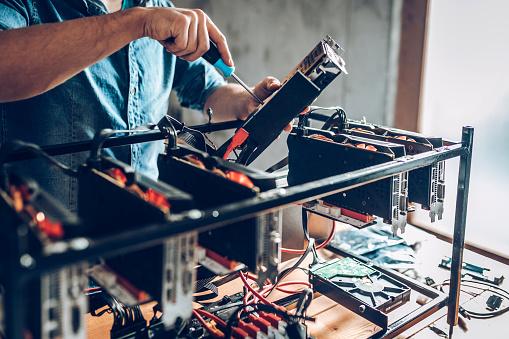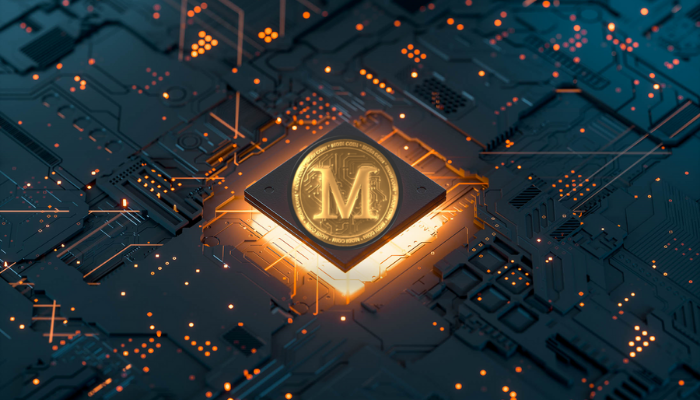It is probably not rocket science to understand that cryptocurrency, in the forthcoming years, will be what experts term as “the future of currency”. Today, most investors have accepted the platform as a secure exchange model. Cryptocurrencies are dominating the economies worldwide. But have you wondered how do these decentralised blockchains or open channels remain secure?
In the digital world, cybersecurity has always emerged as a growing issue. We often hear news about cybercriminals hacking into government portals to steal data and money. Then how does cryptocurrency ensure privacy and, most importantly, financial stability? Is cryptocurrency immune to hacks? Let us gather some details
Who Are Miners in Cryptocurrency?
In layman language, cryptocurrencies have no physical existence like government-issued paper currencies and minted coins. Still, they have a value like any other legal currency and are accepted by nations. They can be easily converted and exchanged within groups of individuals. To protect your cloud from cryptocurrency mining malware, implement strong security measures and monitor your cloud resources for suspicious activity. The year 2021 made significant strides and observed over 6000 cryptocurrencies in circulation.
Every transaction takes place digitally. So when cryptocurrencies are exchanged across platforms, a group of individuals called miners are given the responsibility to verify the transaction details. They are usually assigned the duties to:
- Check who the sender is?
- What is the amount being transferred?
- Who is the receiver?
- Time of transaction
Miners in the blockchain get rewards for verifying valid transactions. Similarly, they are also punished if they falsely verify a transaction. However, the chances of inaccurate verification are negligible.
Users of any given blockchain. Ethereum, Bitcoin, ModiCoin, and Litecoin must pay a transaction fee to miners to verify the transaction. Just like Visa takes a cut for verifying credit card payments.
The only difference is that Miners are random individuals participating in the chain. These fees can be anything from hard-coded block rewards to lucrative businesses. But becoming a miner isn’t that easy.
Let us examine how cryptocurrency mining works:
How Does Cryptocurrency Mining Work?

A network of powerful computers, also known as “mining farms”, solve complex mathematical equations. The first individual, termed as a coder, cracks each code in the equation to authorise the transaction, and in return for this service, the miner gets a percentage of the amount.
The miners earn these small amounts, usually in the form of tokens. Once the mathematical problem is solved, and the transaction is successfully verified, the data is added to the decentralised ledger called a blockchain. The data stored in this ledger uploaded once cannot be changed.
Who Mines Cryptocurrencies?
Miners dedicate their considerable computational skills to solving complex hashing puzzles in the blockchain to add new blocks. Miners with less computational skills often join mining pools. This way, users can still earn a steady income stream from mining.
Mining Pools
Individuals who lack the necessary computational skills or equipment to solve the blockchain puzzles still can make some profits by joining mining pools. These pools allow the miners (with computational skills)to split their earnings. Now, the members in this pool receive equal awards made by the total mining power of the pool.
Mining: Building a Blockchain
A Blockchain consists of blocks that store user data in three components: block, hash, hash from the previous block. These are relevant pieces of data that can be added to a blockchain database. They are assigned unique ids.
Making any change in the block causes the entire chain to change. Thus, recomputing every hash becomes highly challenging. A computational puzzle is solved to compress the data blocks to add a new block. . Blockchain and AI technologies can be used to optimize cryptocurrency mining processes, improve security, and enhance transparency. The miners solve these puzzles. The 1st miner who successfully solves the hash gets coins as rewards. They get to share their results with all the other miners, and this process is called “proof of work”.
Why is Cryptocurrency Mining Important?
In addition to offering miners a percentage of profitable fees, the cryptocurrency ecosystem serves a vital purpose. In other words, it is the only way to ensure new cryptocurrencies are regulated so that the flow of exchange never collapses.
To maintain security, the coin minters burn 2% of coins in regular intervals to ensure no investor can store large amounts of cash or manipulate the flow of coins. Therefore, to ensure that investors continuously have access to coins, cryptocurrencies are minted and verified. For example, reports mention that “there were around 18.93 million bitcoins in circulation, out of an ultimate total of 21 million.”
How Much Money Can a Miner Earn?
Cryptocurrency mining is the star of this era. It is a new way to earn passive income. The most popular platform is Bitcoin. But Bitcoin isn’t the only currency being mined now. There are others likeEthereum, Litecoin that are increasingly becoming popular. While it was relatively easy to make money in the early days of cryptocurrencies, making money today has become highly competitive. And yet, theoretically, it is still advantageous.
The process of crypto mining is complicated; however, also complicated is calculating the cost as the profitability of mining cryptocurrencies varies from coin to coin. There is technically no barrier to how much money an individual can earn.
For example, according to Yahoo Finance, “as of Dec. 27, the estimated daily profit for an Ethereum miner using a single GPU was $4.59. For Feathercoin, miners were estimated to lose $0.58 per day by way of comparison. To generate a significant amount of profit, you’d need to host a large number of GPUs using these calculations.”
Conclusion: Does Cryptocurrency Mining Have a Sustainable Future?
Knowledge, interest, and a powerful urge to learn are absolute necessities for crypto miners. The crypto mining space is continually changing as new advancements arise. The expert miners who get the best rewards frequently concentrate on studying the crypto domain and optimising their strategies to enjoy marginal profits.
According to Arthur Lee, founder and CEO of Saitech, “as mining becomes more competitive, energy-solutions would be a game-determining factor.”
Currently, they are directed towards finding sustainable business models for the mining sector to encourage environmental sensitivity.
Author’s Bio:
ModiCoin is a community driven platform to create a safe space for token aficionados.
